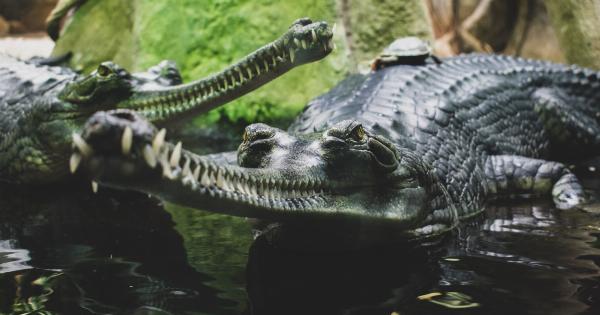Many people find pet turtles to be adorable and fascinating creatures. With their unique shells and slow-moving nature, turtles have become popular pets in households around the world.
However, as cute as these reptiles may be, it is important to be aware of the potential health risks they can pose, particularly in regard to Salmonella infection. In this article, we will explore the harmful effects of Salmonella and explain why pet turtles are often the culprits behind these infections.
What is Salmonella?
Salmonella is a type of bacteria that can cause various types of infections in humans. It is commonly found in the intestines of animals, including reptiles like turtles.
There are numerous strains of Salmonella, with Salmonella enterica being the most common one associated with illness in humans. Infections caused by Salmonella can lead to a condition called salmonellosis.
How is Salmonella Transmitted?
The primary mode of transmission for Salmonella is through the ingestion of contaminated food or water. However, it can also be contracted through direct contact with infected animals or their feces. This is where pet turtles come into the picture.
The Risks of Owning Pet Turtles
While turtles may seem harmless, they can carry Salmonella bacteria without showing any symptoms of illness themselves. This means that even seemingly healthy pet turtles can be carriers of the bacteria and shed it in their feces.
It is estimated that around 90% of all healthy turtles carry Salmonella at some point in their lives.
The problem arises when humans come into contact with the contaminated feces, or touch surfaces that have been contaminated with turtle droppings, and then fail to wash their hands thoroughly.
The bacteria can easily be transferred from the hands to the mouth or other areas of the body, leading to infection.
Children are particularly susceptible to Salmonella infection as they are more likely to handle turtles and may not always practice proper hand hygiene.
Additionally, young children have developing immune systems, which makes them more vulnerable to the harmful effects of Salmonella.
The Symptoms of Salmonella Infection
Salmonella infection can cause a range of symptoms, which typically appear within 12 to 72 hours after exposure to the bacteria. Common symptoms include:.
- Diarrhea
- Abdominal cramps
- Fever
- Nausea
- Vomiting
In severe cases, the infection can result in bloody stools, dehydration, and even hospitalization. Individuals with weakened immune systems, such as the elderly or those with underlying health conditions, are more prone to experiencing severe symptoms.
Preventing Salmonella Infection
The risks associated with pet turtles can be minimized by following a few simple preventive measures:.
- Always wash hands thoroughly with soap and water after handling turtles or coming into contact with their habitat.
- Never allow turtles to roam freely in areas where food is prepared or consumed.
- Avoid kissing or snuggling with pet turtles, as this can increase the risk of exposure to Salmonella.
- Supervise children closely when they interact with turtles and teach them proper hand hygiene.
- Do not clean turtle tanks or habitats in sinks used for food preparation or wash turtle-related items in kitchen sinks.
- Dispose of turtle waste properly, avoiding any contact with bare hands.
- Regularly clean and disinfect turtle tanks and accessories.
- Consider the risks before deciding to bring a pet turtle into a household with children under 5 years of age or individuals with compromised immune systems.
By following these precautions, the chances of Salmonella infection can be significantly reduced.
Legal Restrictions on Pet Turtles
Some countries and states have implemented legal restrictions on pet turtles to reduce the risk of Salmonella outbreaks.
For example, in the United States, it is illegal to sell or distribute turtles with a shell length of less than 4 inches as pets, as these smaller turtles are more likely to be handled by young children.
It is essential to be aware of and adhere to any legal regulations regarding pet turtles in your area to ensure both public health and the well-being of the animals themselves.
Conclusion
Pet turtles might seem innocent and harmless, but they can harbor dangerous Salmonella bacteria.
Through direct or indirect contact with contaminated feces, humans can contract salmonellosis, leading to a range of symptoms and potentially severe complications. It is crucial to educate oneself about proper hand hygiene and take necessary precautions when owning or interacting with pet turtles, especially when children are involved.
By being responsible turtle owners and following recommended guidelines, we can mitigate the harmful effects of Salmonella and keep ourselves and our loved ones safe.






























